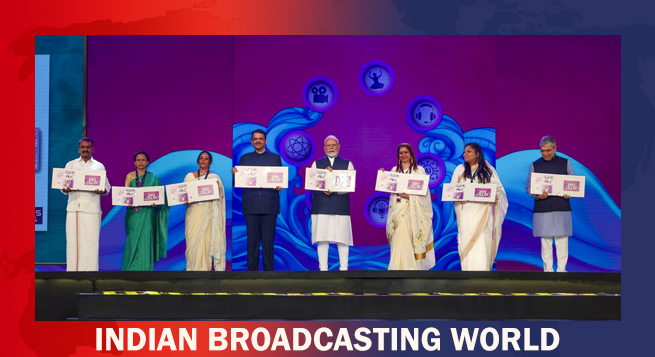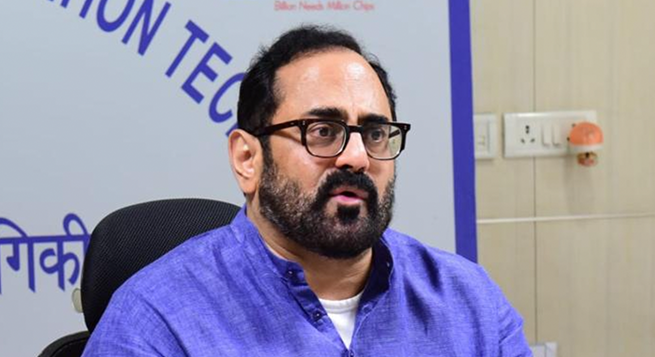The Digital Personal Data Protection Bill passed by the Parliament yesterday is an important step to protect citizens’ rights and support innovation economy and governance, Minister of State for Electronics and IT Rajeev Chandrasekhar said.
Chandrasekhar, according to a PTI report, in a post on X (formerly Twitter), said his engagement on the issue started in 2010 as a petitioner, when he fought and succeeded for privacy to be a fundamental right.
“The Digital Personal Data Protection Bill is passed by Parliament today… My engagement on the issue of privacy started in 2010 and led to me filing a case in the Supreme Court as a petitioner that fought and succeeded in order that Privacy is a fundamental right,” he posted on X (formerly Twitter).
The Bill provides for the processing of digital personal data in a manner that recognizes both the rights of the individuals to protect their personal data and the need to process such personal data for lawful purposes and for matters connected therewith or incidental thereto.
Meanwhile, according to a government statement put out yesterday, the Bill is based on the following seven principles:
- The principle of consented, lawful and transparent use of personal data.
- The principle of purpose limitation (use of personal data only for the purpose specified at the time of obtaining consent of the Data Principal).
- The principle of data minimisation (collection of only as much personal data as is necessary to serve the specified purpose).
- The principle of data accuracy (ensuring data is correct and updated).
- The principle of storage limitation (storing data only till it is needed for the specified purpose).
- The principle of reasonable security safeguards.
- The principle of accountability (through adjudication of data breaches and breaches of the provisions of the Bill and imposition of penalties for the breaches).
The Bill provides for following rights to the individuals:
- The right to access information about personal data processed.
- The right to correction and erasure of data.
- The right to grievance redressal.
- The right to nominate a person to exercise rights in case of death or incapacity.
The Bill safeguards the personal data of children also and allows a data fiduciary to process the personal data of children only with parental consent.
The Bill does not permit processing that is detrimental to the well-being of children or involves their tracking, behavioural monitoring or targeted advertising.
 India can lead global entertainment revolution: Mukesh Ambani
India can lead global entertainment revolution: Mukesh Ambani  TRAI chief not in favour of separate rules for OTT, legacy b’casters
TRAI chief not in favour of separate rules for OTT, legacy b’casters  Stakeholder alignment media’s big media challenge: BARC Chairman
Stakeholder alignment media’s big media challenge: BARC Chairman  PM Modi releases stamps honouring Guru Dutt, Bhanumathi, other cinema icons at WAVES
PM Modi releases stamps honouring Guru Dutt, Bhanumathi, other cinema icons at WAVES  India at dawn of Orange Economy, says PM Modi at WAVES
India at dawn of Orange Economy, says PM Modi at WAVES  ‘Right Time for Create in India, Create for the World,’ says PM Modi at WAVES
‘Right Time for Create in India, Create for the World,’ says PM Modi at WAVES  Shemaroo TV rings in five years of entertainment, nostalgia
Shemaroo TV rings in five years of entertainment, nostalgia  DishTV’s Watcho unveils FLIQS, a game-changer for India’s OTT landscape
DishTV’s Watcho unveils FLIQS, a game-changer for India’s OTT landscape  Prasar Bharati invites applications for MPEG-2 slots on DD Free Dish
Prasar Bharati invites applications for MPEG-2 slots on DD Free Dish  Aamir Khan urges creation of global distribution network for Indian films
Aamir Khan urges creation of global distribution network for Indian films  Only 2% of Indians watch films in theatres, says Aamir Khan at WAVES 2025
Only 2% of Indians watch films in theatres, says Aamir Khan at WAVES 2025 








